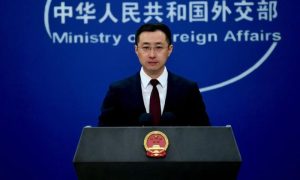TOKYO: Microsoft unveiled a monumental $2.9 billion investment plan over the next two years in Japan, aiming to bolster the country’s artificial intelligence capabilities and fortify its cybersecurity defenses amidst rising threats from China and Russia.
The announcement coincides with Japanese Prime Minister Fumio Kishida’s visit to Washington, highlighting Tokyo’s ambition to emerge as a key player in AI technology.
Japan is actively expanding its semiconductor industry with significant foreign investment. Taiwanese chip giant TSMC recently inaugurated an $8.6-billion chip factory in southern Japan and is planning a second facility.
Brad Smith, Vice Chair and President of Microsoft, emphasized the significance of this investment, labeling it as Microsoft’s largest-ever commitment in Japan’s 46-year history.
“These investments are critical to empowering Japan to cultivate a robust AI-driven economy,” stated Smith during his meeting with Prime Minister Kishida.
The investment package includes the provision of advanced computing resources, particularly powerful graphics processing units essential for AI applications.
Microsoft also pledged to train three million Japanese workers in AI skills over the next three years and announced the establishment of its first Microsoft Research Asia lab in Tokyo, dedicated to AI and robotics research.
Furthermore, Microsoft plans to collaborate with Japan’s government to enhance cybersecurity measures in response to escalating cyber threats, especially from China and Russia, and the growing global ransomware activity.
“The cybersecurity landscape has become increasingly challenging,” remarked Smith to the Nikkei news outlet.
In addition to Microsoft’s initiative, Google recently launched a cybersecurity hub in Japan to strengthen defense capabilities in the Asia-Pacific region.
Prime Minister Kishida’s upcoming meeting with President Joe Biden will prioritize defense cooperation, with a significant focus on advancing technology across various sectors from space to semiconductors.
Motivated by strategic concerns regarding Taiwan, Japan is striving to revive its semiconductor industry reminiscent of its 1980s prominence when Japanese firms like Toshiba and NEC led the microchip market.
Apart from the TSMC investments, Japan is injecting approximately $6 billion into Rapidus, its next-generation semiconductor venture involving key Japanese corporations including Sony and Toyota.
Rapidus is collaborating with IBM to commence mass production of two-nanometer logic chips in Japan by 2027.
Alongside Microsoft’s investment, two groundbreaking AI research partnerships were announced between leading US and Japanese universities, funded by tech giants like Nvidia, Amazon, Arm, SoftBank Group, and Microsoft.
US Ambassador Rahm Emanuel hailed these research initiatives as pivotal in setting industry standards in the rapidly evolving AI domain.
Rene Haas, CEO of British chip designer Arm, emphasized the transformative impact of AI advancements across industries, heralding the significance of these university partnerships.


























